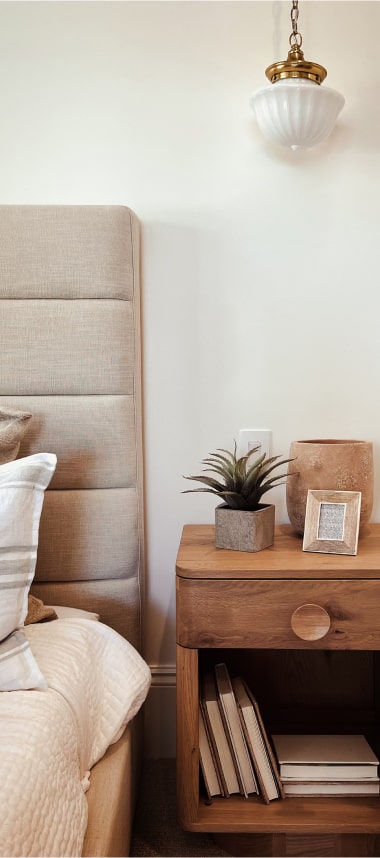Frequently Asked Questions
Overview
-
How Do I Start the Home Buying Process?
Begin by determining your budget, getting pre-approved for a mortgage, and consulting with one of our experienced real estate agents to find the perfect home.
-
What Should I Consider When Choosing a Neighborhood?
Consider factors like safety, school districts, commute times, amenities, and future development plans before making a decision.
-
How Much Should I Save for a Down Payment?
Typically, a down payment ranges from 5% to 20% of the home's price. However, some loan programs allow for lower down payments.
-
Do I Need a Real Estate Agent to Buy a Home?
While it's not required, a real estate agent can help you find listings, negotiate the best deal, and guide you through the buying process.
-
What Is the Closing Process Like?
The closing process includes finalizing paperwork, paying closing costs, and officially transferring ownership of the property.
-
How Do I Know If I'm Getting a Good Deal on a Home?
Research market trends, compare similar properties, and get a professional appraisal or home inspection before making an offer.
-
What Are Closing Costs and How Much Should I Expect to Pay?
Closing costs typically range from 2% to 5% of the home's price and may include lender fees, title insurance, and inspection fees.
-
Should I Get a Home Inspection Before Buying?
Yes, a home inspection helps identify potential issues, allowing you to negotiate repairs or reconsider your purchase if necessary.
-
How Long Does It Take to Buy a Home?
The home-buying process typically takes 30-60 days, but it can vary depending on financing, inspections, and negotiations.
-
Do You Offer Assistance for First-Time Homebuyers?
Yes! We provide guidance, resources, and access to first-time homebuyer programs to help make your purchase smoother.
Costs and Payments
-
What Are the Costs Involved in Buying a Home?
Aside from the down payment, buyers should consider costs such as closing fees, home inspections, property taxes, homeowner’s insurance, and potential repair costs.
-
What Is a Mortgage and How Does It Work?
A mortgage is a home loan provided by a lender, allowing you to buy a property while making monthly payments over time, typically including principal and interest.
-
What Credit Score Do I Need to Qualify for a Mortgage?
While requirements vary, most lenders prefer a credit score of at least 620 for conventional loans, though FHA loans may allow lower scores.
-
What Are the Monthly Costs of Owning a Home?
Monthly costs include mortgage payments, property taxes, homeowner's insurance, utilities, maintenance, and possibly HOA fees.
-
What Is an HOA Fee, and Do I Have to Pay It?
A Homeowners Association (HOA) fee is a monthly or annual charge that covers community maintenance and amenities. Not all properties have HOA fees.
-
What Are Property Taxes and How Are They Calculated?
Property taxes are annual taxes paid to local governments based on your home's value. Rates vary by location and are used to fund public services.
-
Can I Buy a House With No Down Payment?
Yes, some government-backed loans, such as VA or USDA loans, offer zero-down-payment options for eligible buyers.
-
What Are the Benefits of Getting Pre-Approved for a Mortgage?
Pre-approval helps you understand your budget, strengthens your offer when negotiating, and speeds up the home-buying process.
-
What Is Private Mortgage Insurance (PMI), and Do I Need It?
PMI is required for conventional loans when you put less than 20% down. It protects the lender if you default on your loan.
-
Can I Negotiate the Price of a Home?
Yes! A real estate agent can help you make a competitive offer, negotiate terms, and possibly lower the price based on market conditions and inspections.
Safety and Security
-
How Do I Know if a Neighborhood Is Safe?
Research crime statistics, visit the area at different times of the day, talk to neighbors, and check for well-lit streets, security cameras, and neighborhood watch programs.
-
What Home Security Features Should I Consider?
Look for features like smart locks, security cameras, motion detectors, alarm systems, gated entry, and strong doors and windows for better protection.
-
Are Gated Communities Safer Than Open Neighborhoods?
Gated communities often have controlled access, security patrols, and surveillance, which can reduce crime, but safety still depends on the overall community security measures.
-
What Should I Check for Fire Safety in a Home?
Ensure the home has smoke detectors, fire extinguishers, accessible exits, up-to-code wiring, and a fire escape plan, especially in multi-story buildings.
-
How Can I Protect My Home Against Natural Disasters?
Depending on the area, consider flood barriers, storm shutters, reinforced roofing, earthquake-resistant structures, and adequate insurance for protection.






